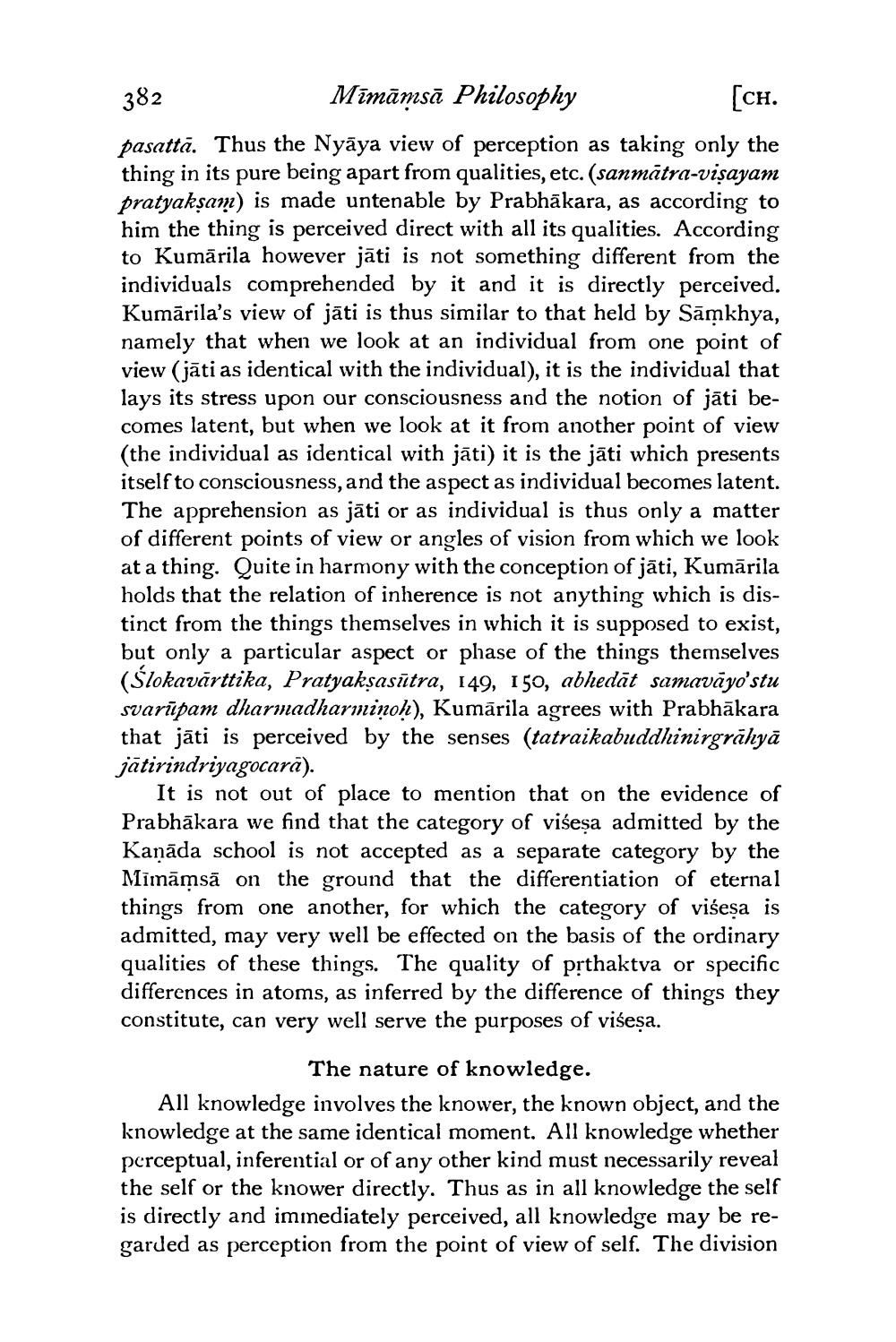________________
382
Mīmāmsā Philosophy
[CH.
pasatta. Thus the Nyaya view of perception as taking only the thing in its pure being apart from qualities, etc. (sanmātra-viṣayam pratyakṣam) is made untenable by Prabhakara, as according to him the thing is perceived direct with all its qualities. According to Kumārila however jāti is not something different from the individuals comprehended by it and it is directly perceived. Kumārila's view of jāti is thus similar to that held by Samkhya, namely that when we look at an individual from one point of view (jāti as identical with the individual), it is the individual that lays its stress upon our consciousness and the notion of jāti becomes latent, but when we look at it from another point of view (the individual as identical with jāti) it is the jāti which presents itself to consciousness, and the aspect as individual becomes latent. The apprehension as jāti or as individual is thus only a matter of different points of view or angles of vision from which we look at a thing. Quite in harmony with the conception of jāti, Kumārila holds that the relation of inherence is not anything which is distinct from the things themselves in which it is supposed to exist, but only a particular aspect or phase of the things themselves (Ślokavārttika, Pratyakṣasūtra, 149, 150, abhedāt samavāyo'stu svarupam dharmadharminoḥ), Kumārila agrees with Prabhakara that jāti is perceived by the senses (tatraikabuddhinirgrāhyā jatirindriyagocarā).
It is not out of place to mention that on the evidence of Prabhakara we find that the category of viseṣa admitted by the Kanāda school is not accepted as a separate category by the Mīmāmsā on the ground that the differentiation of eternal things from one another, for which the category of višesa is admitted, may very well be effected on the basis of the ordinary qualities of these things. The quality of pṛthaktva or specific differences in atoms, as inferred by the difference of things they constitute, can very well serve the purposes of viseṣa.
The nature of knowledge.
All knowledge involves the knower, the known object, and the knowledge at the same identical moment. All knowledge whether perceptual, inferential or of any other kind must necessarily reveal the self or the knower directly. Thus as in all knowledge the self is directly and immediately perceived, all knowledge may garded as perception from the point of view of self. The division
be re




